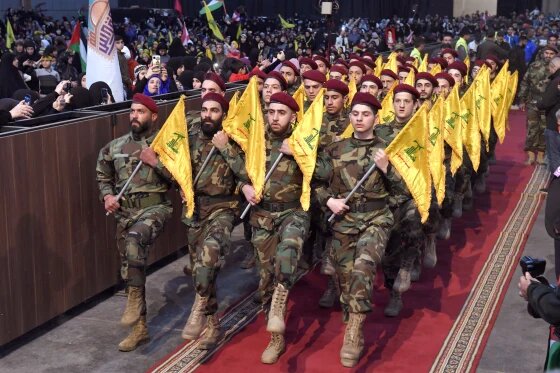Disarming Hezbollah: An American prescription for Lebanon’s fragmentation

TEHRAN - In 2025, both internal and international pressures for the disarmament of Hezbollah have significantly intensified, to the extent that the Lebanese President, Joseph Aoun, has officially voiced this demand.
Ostensibly, the plan is promoted under the guise of strengthening state sovereignty and centralizing national security. However, a deeper examination reveals a far more strategic project: weakening the axis of resistance and paving the way for expanded Western and Zionist intervention. Lebanon’s political, economic, and social structure has become increasingly vulnerable due to a multitude of challenges—among them, Israel’s aggression and attacks on its territory, the brutal assassination of Sayyed Hassan Nasrallah and many Hezbollah commanders, the martyrdom of numerous civilians, the destruction of infrastructure, and widespread devastation. Lebanon, like many other countries in the region, has not been immune to Israeli aggression. Foreign interventions, a paralyzing financial crisis, and the fragility of state institutions have all contributed to this vulnerability. Accepting a vague and dangerous plan such as Hezbollah’s disarmament could lead to the total collapse of the country.
Hezbollah’s deterrent role since its 2006 victory cannot be denied. Since the 33-day war against Israel in 2006, Hezbollah has evolved into a military force with undeniable regional influence. In that war, the group successfully halted the Western-equipped Israeli military and imposed a new balance of power—one Israel has failed to break or ignore. That conflict transformed Hezbollah from a militia into a critical actor in Lebanon’s national security and regional dynamics, establishing it as a unique pillar in the country’s strategic deterrence architecture. At a time when Lebanon remains in a fragile state and Israel continues to threaten the very existence of countries in the region, disarming Hezbollah would effectively eliminate the only robust deterrent Lebanon has—one that has, through years of effort and sacrifice, ensured the country is no longer easily subdued by Israeli aggression.
Historical precedents from Iraq, Libya, and other West Asian nations offer sobering warnings. In the post-2003 Iraq, Paul Bremer’s decision to dissolve the army and disband non-state actors pushed the country into chaos, enabling the rise of ISIS and leading to practical disintegration. Similarly, Libya plunged into an era of disorder and instability following Gaddafi’s fall and the dismantling of state security forces. Lebanon, with its sectarian-based power-sharing, fragile financial reliance on the West, and institutional weaknesses, is ill-equipped to endure such a scenario. Disarming Hezbollah without a viable replacement will only pave the way for foreign invasions, internal collapse, and the unraveling of the nation—an all-too-familiar outcome seen in neighboring states.
This project of disarmament is not merely symbolic; it is a tool of structural fragmentation. The call for Hezbollah’s disarmament is accompanied by a combined strategy of diplomatic, financial, and military pressure. The U.S.-led negotiation model includes preconditions such as a halt to Israeli attacks, Israeli withdrawal from southern Lebanon, and in return, Hezbollah’s surrender of arms. Yet historical experience teaches us that negotiations under duress rarely lead to fair compromise.
The media and political campaign to legitimize this agenda must also be scrutinized. Pressures from Washington, Tel Aviv, and their Persian Gulf Arab allies are driven by a clear political goal: to dominate Lebanon. The language used to frame this objective—state sovereignty, peace, reform—is rhetorical cover for the actual aim: to eliminate the resistance, neutralize Lebanon’s top deterrent force, and open space for dependency and fragmentation. A major challenge to this plan is the Lebanese army’s inability to replace Hezbollah. Beyond limited resources and financial dependency, nearly half of the Lebanese armed forces are Shia, many of whom sympathize with Hezbollah. Any serious attempt at disarmament could fracture the army itself, transforming it into an insecure and ineffective political actor.
Furthermore, Hezbollah has consistently expressed willingness for dialogue since 2005 without ever agreeing to surrender its weapons. It has even considered integration into the army.
Leave a Comment